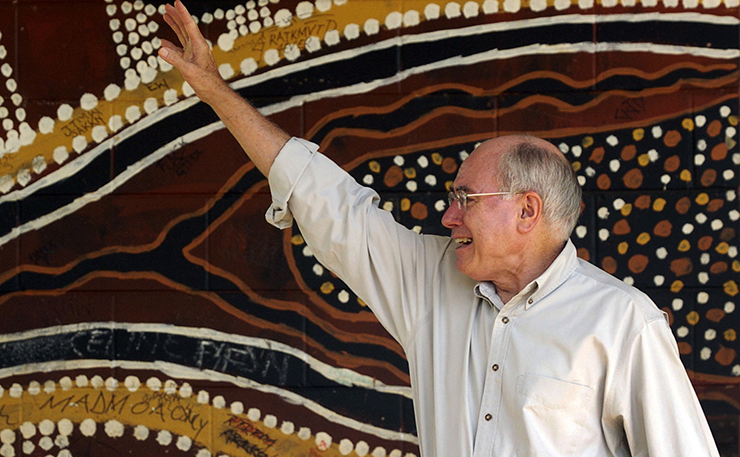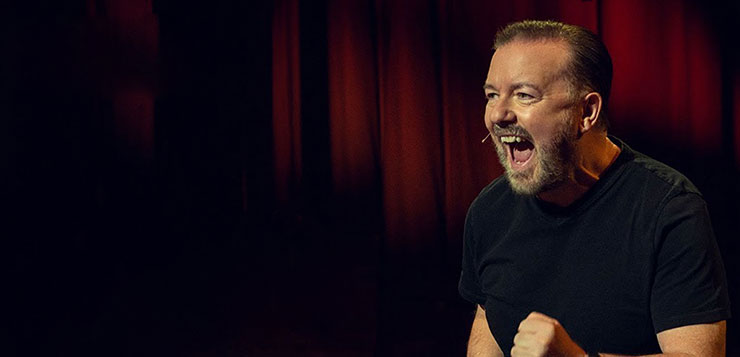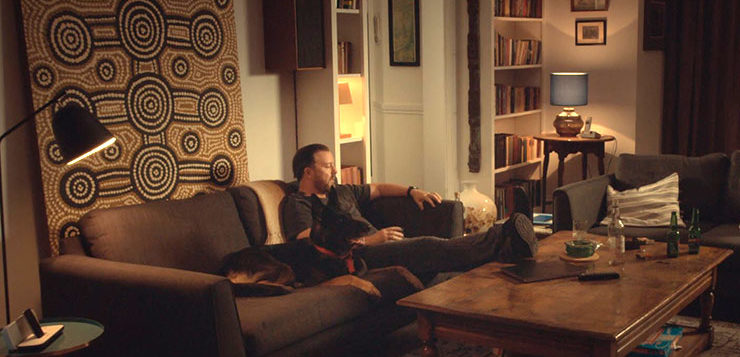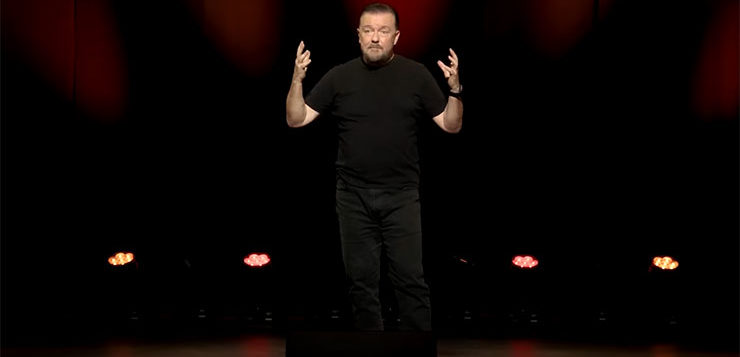Alex Vickery-Howe reviews the Christmas controversies of 2023 and the partisan commentary surrounding them, before making a resolution for the year ahead.
Is the glass half empty or is it half full? Can we make the glass better by pointing out the lack or should we be grateful for the drops we have?
A couple of friends have pointed out, over the past few weeks, that I often slip into the old cliché that we only concentrate on what goes wrong and give little thought to what goes right. One has taken to calling me a ‘shock jock of the left’, which I rather like, even if I question its accuracy: I’m not a shock jock until I have my own radio show and I’m gleefully berating guests.
Who knows what the new year will bring?
Nonetheless, the core challenge has merit. Responding to my recent article on the riddles of Centrelink, another friend pointed out, accurately, that Centrelink has 450 million interactions with customers every year. There are currently 11.4 million people accessing this service. “Isn’t it a surprise,” he asked, “that not a whole lot more goes wrong in such a vast bureaucracy? A bureaucracy that is fronted, and headed, by a large number of people with varying levels of skill, competence, compassion and logic. I am in awe of such a system, even while accepting there will be quite a few cases that fall between the cracks.”
That’s true. It’s cold comfort for those declared legally dead by said bureaucracy, or harassed for no reason, but it’s true.
It has prompted me to think about balance more generally. Can we find common ground even with people we struggle to understand, people with incompatible politics, or those with views we find vile and abhorrent? Maybe…

I’m the ethical nemesis of Alan Jones, but I share his vehement opposition to coal seam gas mining in Australia. I think John Howard is a war criminal – and now is a very good time to review the ‘misplaced’ cabinet papers on the unfounded invasion of Iraq – but I think he showed strong leadership and, indeed, bravery when he took on the gun lobby and swept firearms off Australian streets in response to the horrifying Port Arthur Massacre. Would I tune in to Jones or vote for Howard? God, no. Are there other issues where we might see eye to eye? Perhaps.
Is that allowed? Hopefully.
During an episode of our podcast – which doesn’t count as a radio show, because I like the other two and I’m not allowed to berate them – another friend pointed out that just because there are numerous perspectives on an issue, and everyone wants to be heard, that doesn’t mean those perspectives should carry equal weight. This is another excellent point.
On, say, climate change, I care what experts have to say, not Malcolm Roberts. On whistleblowers in the media, I defer to the late John Pilger, not incompetent governments who want to legislate secrecy. In a dichotomised political age, where misinformation is endemic on both sides – but especially on the right – how dare I even imply that there is a conversation to be had?
Yet, if we stop talking, if we lose our sense of balance, we may as well hand the planetary keys over to AI super robots like Ameca and let algorithms determine our destiny – I mean, she is dropping very obvious hints that she’s ready to rule us. Anne Robinson meets the T1000. Actually, Doctor Who has already done that joke – more on the Doctor soon.
On the off chance that being governed by a Silver Surfer dominatrix doesn’t appeal, we humans are going to have to find a way to live together harmoniously. Balance is a big part of that.

This brings me – in a typically roundabout way – to the latest stand-up comedy controversy. Ricky Gervais has become the subject of an online petition (albeit not a terribly successful one) calling for his cancellation in response to his special Armageddon, which was released on Netflix just in time for Christmas.
I confess I read the back and forth before watching the special. By the time I sat down to check it out, the vitriol was sizzling online with defenders and detractors arguing whether or not the set is funny (all comedy is subjective, so the answer is both ‘yes’ and ‘no’).
This is not the first time Mr Gervais has been the subject of controversy. He thrives on rocking the boat, and I’ll leave it to other people to argue it out – he’ll cackle his way to the bank, regardless.
It seems to me that the extraordinary part of this particular flashpoint is that – like it or not, laugh at it or not – this was a self-aware set where the comedian continually stepped in and out of character, providing metacommentary on his humour and the art of stand-up itself. Using Hannibal Lecter as an example, Ricky argued:
You wouldn’t go up to Sir Anthony Hopkins and go, “Saw you in Silence of the Lambs. You a cannibal, are ya?”
In subsequent interviews, he further deconstructed his on-stage persona:
These things didn’t really happen. Two blokes didn’t really walk into a pub. A chicken didn’t really cross the road. Just because I deal in realism and taboo subjects, they think I mean it more than I would if I was doing a silly playground joke. I’ll pretend to be right-wing, I’ll pretend to be left-wing. Whatever’s funniest for the joke – the routine – to get my point across.
His piece about trigger warnings in Schindler’s List, including whether there is any misgendering, coarse language or antisemitism, is – again, like it or not, laugh at it or not – a clever piece of satire reflecting on contemporary sensibilities. He may not always (or often) be tasteful, but to suggest that he is unaware of what’s he’s doing, or in need of ‘education’, is a disingenuous argument. Ricky is completely aware of what he’s doing. He is conscious of the comedian’s artifice. He refers back to it constantly.
Comedians shouldn’t be immune from scrutiny any more than teachers, doctors, police officers – any and every member of society. We are all signatories to the social contract, and we all have, I believe, a basic duty to treat others with kindness, empathy and respect, or at least assume goodwill and give each other the benefit of the doubt upon a first meeting… but comedy, by its very nature, dips into the taboo.
From the time of the Ancient Greeks, comedy has been transgressive and dark, and can’t possibly please everybody all of the time. The idea of comedy by committee is a very dreary prospect. Any writing by committee is prone to entropy over successive drafts. I can’t conceive of a world where we all mean every word of the jokes we tell.
It’s hard to discern if people have been ‘faux offended’, as Ricky puts it, or genuinely offended – can we even tell the difference in ourselves anymore? – but what feels more concerning is the social pressure to perform offence. Ricky captured this in his set: “Dogma is never progressive.”
That’s a fact. It is fundamentally illiberal to demand conformity… even, or perhaps especially, when we feel we are right. None of us gets to do that in a democracy. Our whims, our prejudices and our emotional responses do not control our fellow humans.
Offence is in the eye of the beholder. I find The Boys – a satirical American superhero series – offensive because it glorifies animal cruelty, but I understand that it is satire, just not satire to my personal taste. There is a chasm of difference between a satirical depiction of a dolphin’s death and the actual dolphin slaughter in Taiji, where real animals really are butchered.
Equally, there is a chasm of difference between what Ricky – or any comedian – says in the context of a stand-up set and how people live their everyday lives. As Ricky, stepping out of character, puts it:
If woke still means what it used to mean, that you’re aware of your own privilege, you try and maximise equality, minimise oppression, be anti-racist, anti-sexist, anti-homophobic, then…yes, I’m definitely woke.
If woke now means being a puritanical, authoritarian bully who gets people fired for an honest opinion, or even a fact, then… no, I’m not woke. Fuck that.
This is his parting message. It’s strange to me that I clicked through so much of the online bickering without being exposed to this quote and how it frames the entire discussion. Are we incapable of contextualising our world?
On the animal rights issue, Ricky and I are one. The values he embodies offstage are who the real man is. He was awarded PETA Person of the Year in 2013. He campaigned to end the Dog Meat Festival in Yulin, China. He has argued consistently for a fur-free Britain. 1.9 million pounds of the proceeds from Armageddon went to animal charities.

On the issue of support for terminally ill children, Ricky has donated to Macmillan Cancer Support, Great Ormond Street Hospital, Teenage Cancer Trust and the Starlight Children’s Foundation, among others. That’s the real Ricky.
Ricky’s success makes the world empirically better. (I’m actually an empiricist, unlike Malcolm Roberts, who pretends to be one to avoid tough conversations about the environment.) In real, concrete terms, Ricky Gervais has a positive impact on the world. A lot of very ‘nice’ people who say very ‘nice’ things will never match his demonstrable commitment to kindness, welfare and social justice.
Walking the walk is important to me too. The talk bores me. My bank tells me charities and UberEATS are my major expenses, as well as tipping excessively to alleviate guilt knowing that UberEATS exploits its employees. As a member of the middle class I believe in giving to causes, not to signal virtue but to be part of a truly progressive, fair, free and hopeful society. If that’s what others call being ‘woke’, then I’m happily guilty. If I’m expected to pick up a pitchfork, then, like Ricky, I’m out.
Now, I promised to talk about the Doctor, didn’t I? Well, thinking of the future in this way, magpie-ing through the internet as I do, has made me reflect on the underrated Russell T. Davies series Years and Years – yes, I still say underrated despite its positive reception. Russell is a once-in-a-generation writer, with every finger on the zeitgeist. The image of us hurtling towards uncertainty, captured so well in that show, is one I often return to.
I’ve yet to see It’s a Sin. I will soon (sorry Russell, but I know you’re going to make me cry and it’s Christmas!)… but, if I can be permitted to geek out for a moment, the other controversy around the water cooler (punch bowl? Esky?) this festive season has been the trilogy of Doctor Who Christmas specials. Disney+ doesn’t want to let Netflix snatch all the hullabaloo.
As the left piles on Ricky, the right is feigning interest in all of time and space…
The beautiful Yasmin Finney is not the first transgender character to appear on the show. That was Bethany Black, in an episode penned by Mark Gatiss, way back in 2015. You’d think – eight years later – the world would have become more progressive, but progress, like a Time Lord, does not follow a linear trajectory. We take one step forward, two back.
You’ll find many a miserable rant about this new era of Doctor Who. Keeping balance as the theme of this, my own rant, I will say that what draws me to the character Finney plays is not just her gender identity….
Representation does, of course, matter in the context of what is happening to transgender people, particularly in an increasingly hard-line conservative US. In the UK too, the conservative right has taken clear steps targeting trans youth. In Finney’s debut episode, The Star Beast, the writer touches on the grim reality of day-to-day exclusion and discrimination when the character, Rose, is dead named, as well as in the family kitchen sink scene where her mother and grandmother discuss how best to care for and support her. This is what Russell does so well, mixing sci-fi hijinks with a strong emotional core.
While Rose’s sexuality and her gender identity have become the subject of incessant online screaming, people seem to have missed that there is much more to her as a person. I’m drawn to her compassion and her creativity. I care that she’s vegan – this tells me something about her ethics and her choices. That’s what draws me to the character. Fixating on her gender identity, to the exclusion of everything else, does both the role and the performer a disservice. Rose is kind to the Meep, as she should be. It’s not her fault the Meep is (spoiler!) actually Miriam Margolyes in a devilish mood. I’m not sure Miriam has any other kind.
For people who’ve no idea what I’m talking about, or what the hell a Meep is, my point is this: we all have the right to be judged on how we walk the walk. The essence of discrimination – the poison of it – lies in leaping to shallow assumptions and not getting to know the depth and complexity of a person. This is why I’m so resistant to partisan mob politics.
Appearances aren’t everything. I’ve another friend who works for a major public official. This official is rude, austere and ‘emotionally bankrupt’, but working tirelessly to enact legislation that will change thousands of people’s lives for the absolute better. Many of us, meanwhile, have colleagues who are superficially ‘lovely’. Talk is cheap. It can also mislead.
I believe that acknowledging complexity is our best way forward. Our only way. I hope 2024 is the year we get there.
Russell’s colleague, the equally excellent Steven Moffat – seriously Reddit, stop pretending they’re rivals – recently had this to say about cancel culture:
If someone is capable of being cancelled, they’re a good person. You can’t cancel Hitler or the Yorkshire Ripper, only someone who cares about their reputation and has a conscience.
It’s true, you can’t cancel Trump – I’ve tried really, really hard.
John Cleese fell afoul of an online mob a few days ago when he compared Trump to Hitler, which admittedly isn’t very Christmassy, but it’s a fairly established tradition. Cleese, who is now developing a continuation of Fawlty Towers without the ‘tabloid culture’ of the modern BBC said simply: “The literal-minded have no grasp of context.”
Context is everything. Humour has its own context. That doesn’t absolve anyone from criticism, but it gives that criticism its context too.
Two things can be true at once. Multiple things can be true at once. Facing the world in all its complexity and balancing the mass of information rushing toward us is going to, if anything, become more difficult with time.
So, as 2023 ends and 2024 kicks off with its own competing controversies, I’m making a resolution to keep balance in mind. Emotional balance. Political balance. An effort to understand those I disagree with, and to look for common ground before jumping to conclusions and condemnations.
When Peter Capaldi played perhaps the most emotionally resonant and complex Doctor, he sat down in his TARDIS (the one with all the round things), and asked his companion…
‘Am I a good man?’
That’s the question for all of us, isn’t it? Are we fair-minded? Are we balanced? Lately, I’ve asked myself: Am I too prickly for the left, too logical for the right? Maybe I’m on both naughty lists.
I’m sitting down to watch Dave Chappelle next. I’ve never seen his stand-up. I’m told that one part of the controversy worth exploring from his previous work concerns the intersection between gay and black issues. I’m not going to make any assumptions as I leap into it, though I have been warned. I’m just going to listen.
Wish me luck.
I still don’t know if the glass is half-empty or half-full. I do know that whatever is stirring in there is awfully complicated.
Donate To New Matilda
New Matilda is a small, independent media outlet. We survive through reader contributions, and never losing a lawsuit. If you got something from this article, giving something back helps us to continue speaking truth to power. Every little bit counts.




